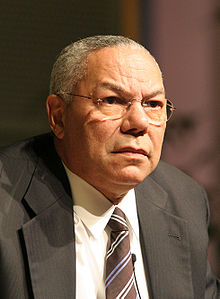My job was to be a buffer between the media, the president, and all the other parties so General Schwarzkopf could do his job.”
I saw General Colin Powell speak last night, and this is the comment he made when asked about his relationship with Stormin Norman. It made me think about situations I hear about and have experienced before, especially as I try and streamline decision making in high growth companies and help leaders create processes that support decentralized decision making and yet still help the organization effectively balance priorities.
I often here the word politics or territory in conversations about how work gets done. One of my goals when working with clients around the EOS process is helping them lead more effectively by NOT making all the decisions, and yet giving up some instant access to everyone in the company. You see – no matter what size the company, when the CEO comes in and says something most people will take anything they say as a ‘to do’ and drop everything. I think back to a CEO’s surprise that his suggested reading list had become a must do item for new leaders and totaled 2,461 pages. When executives speak, whether it is an order or a suggestion, it either becomes a deliverable or a source of extreme frustration for people who won’t object . In my experience a majority of the time it becomes both.
It is hard to have an open and honest conversation between the top and bottom of the organization, and yet it is critical to figure out a way to make it happen.
- What if we asked other leaders to talk to us before talking to our people not because we wanted to protect our people/agenda, but because we wanted to be a buffer so we could help our team re-prioritize work when needed?
- What if we did it because we had an amazing performer that was a hot head, and being a buffer allowed us to work with them on not swearing when they get frustrated – and it was okay if they made a few mistakes with us for now?
- What if we did it because you wanted to make sure our people knew how to constructively share their opinions with executives, and being a buffer gave us a chance to coach them on speaking up?
- What if you had one of these three reasons above AND you shared them with your peers up front so they did not see your actions as SILO Building but TALENT Building? It might also put you in a position to support their development on listening more effectively and clearly communicating the WHY behind their requests.
There are lots of reasons to respect and admire Colin Powell, and my 90 minutes with him last night certainly reinforced that. He is definitely a leader worth listening to.
